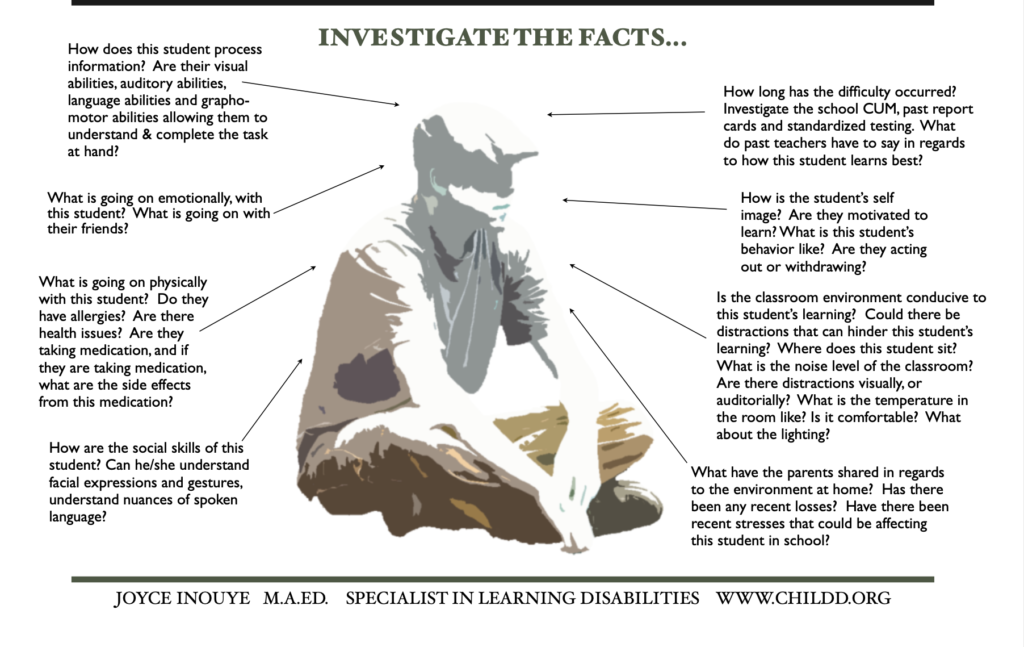From the rising sun to its setting,
the name of the Lord is to be praised.
Psalm 113:3
Keys to unlock the potential within
us or our children with learning disabilities
Christian children and adults with learning disabilities, who believe in the Bible, wrestle with verses that speak on how wonderfully God has created them. As they observe others, they feel alone, and often wonder why they can't learn like others. Without realizing what is true, the result can fuel ungodly beliefs that root deeply and affect their faith.
God does not make mistakes. He created us with strengths and weaknesses for His purposes. His ways are higher and He knows what plans He has for us, that are good, to give us a hope and a future (Jeremiah 29:11).
Here are five ways to encourage, lead, and unlock the potential in our disabilities as an adult or child.
1. Guard your hearts from ungodly beliefs. In Proverbs 4:23 (NIV), it says, "Above all else, guard your heart, for everything you do flows from it." Arming yourself, or your children with God's Word will provide His perspective over ours. He sees from a vantage our eyes cannot. He knows the beginning and the end, and is the Creator of you, or your beloved. He knows the plan for all of our lives and is faithful to show us. He provides the Holy Spirit to illumine His Word to counter the lies we speak to ourselves, or doubts that His Word is not for us. God says we need to take captive all our thoughts (2 Corinthians 10:5).
2. Look at what comes easily and naturally for you, or your child. This can be academic, or in music, arts, creative activities, and/or drama. It can be in social sensitivities, faith and compassion. It can be in service, prayer, evangelism, and/or ministry. It can be the joy that their smiles bring, or in the care they show by how they love. Often times the focus is on the remediation, and little time is left to acknowledge their strong areas. When you are able to see both strengths and weakneses, we are able to see God's "fearful and wonderful" design of each person. This also will reveal their calling, and purpose to glorify God.
4. Use the tools, strategies, and accommodations meeting individual needs which accommodate for weaker areas. For example, all digital devices use speech-to-text (STT) and optical character recognition (OCR). These applications eliminate the need to text or keyboard for those who have fine-motor problems. Books online are read by human readers so those with reading challenges can obtain the information. Digital recordings can be used for those with auditory or language deficits, and alarms for schedules and reminders are available. Use of applications such global positioning satellite (GPS), use of a camera to take pictures of notes or memos, and digital secretaries such as "Siri" are also available.
5. Believe that what God says is true. When we believe our faith overcomes any fret, fear, fight or flight. In 2 Corinthians 12:9, the Apostle Paul states what God told him, "...My grace is sufficient for you, for my power is perfected in weakness." Paul then states that he would rather boast of all he had gone through for God to be glorified knowing when he is weak, God rises to make him strong.

What is done when strengths cannot be determined?
Formal testing allows the public, private and county schools the ability to determine if their student qualifies for services provided at the school district, under state and federal law. For adults, private testing allows them to determine if they have learning disabilities that are interfering with their work ability and social relationships.
Having accurate information through testing will allow individuals to better navigate life and situations. We recommend testing as soon as possible. This will avoid additional difficulties that accompanies low self image.
Testing is recommended as follows:
1. Testing should be done by a professional team of medical, educational, and psychological expertise. If a child is being tested, parental input is vital. Medically, doctors understand the body, and health concerns that might be a contributing factor. Educationally, teachers and experts from the school have knowledge of curriculum, how teaching is administrated, and where one's child is as compared to his peers, as well as the dynamics that could be contributing to learning problems.
2. Testing should be done with cross-cultural assessments and standardization. The tests should be the most updated versions, and administrated as directed.
3. A quick test, might provide a quick result, but speed is not a factor for accuracy. Formal testing should be in an environment that is comfortable and not distracting.
4. Parents of young children need to wait in the waiting room. The first few appointments might require "establishing rapport" versus beginning to test. For adults, it is important to self advocate your needs (i.e. break time). Regardless, diagnostic formal assessments require the brain to rest, and testing should never occur in one sitting for many hours without a break.

If formal tests are not available there are clues to informally discover your or your beloved's "strengths and weaknesses". On the chart below are some questions that can bring greater insight to investigate what might be contributing to one's learning challenges, and to help informally make awareness for those involved in the testing process.

